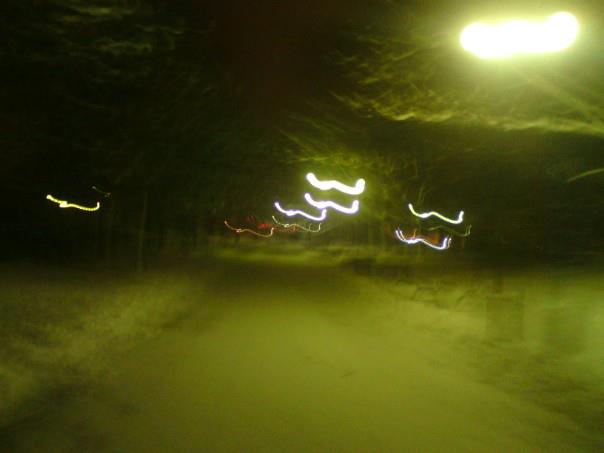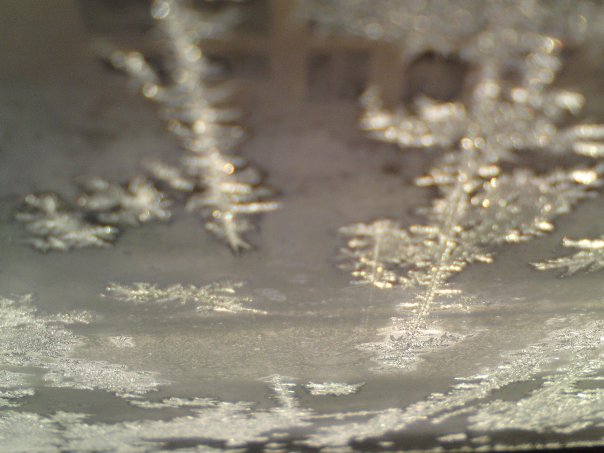Frajda
Tu es parti le lendemain. Moi, je suis restée. Encore une fois on a choisi des chemins différents. Séparément et parallèlement. Tu ne me manquais pas. Je ne voulais pas que tu me manques.
J’ai joué à d’autres jeux, j’ai joué avec des autres. Après un certain temps une lettre est arrivée. Trois pages d’un aveu passionné à lire entre les lignes. Trois pages fortes comme un tsunami. Je me suis noyée. Je suis restée allongée, inerte, essoufflée pendant des heures, des jours, des semaines. Tu m’as attachée avec cet aveu. Tu m’as fait ce qu’on n’aurait jamais dû se faire. Trois mots qu’on ne devait jamais prononcer. Aucun « je », aucun « te » et aucun « aime » sur ces trois pages, mais chaque mot le criait. J’ai bien planqué ta lettre et j’ai décidé d’oublier.
Tandis que j’oubliais, tu étais assis sur le trottoir d’une ville brûlante du sud de l’Europe, tu buvais du vin à même la brique, quelqu’un battait le tambour et toi, tu crachais le feu et virevoltais en rythme. Les pièces tintaient. Les langues s’entremêlaient : espagnol, portugais, russe, anglais.
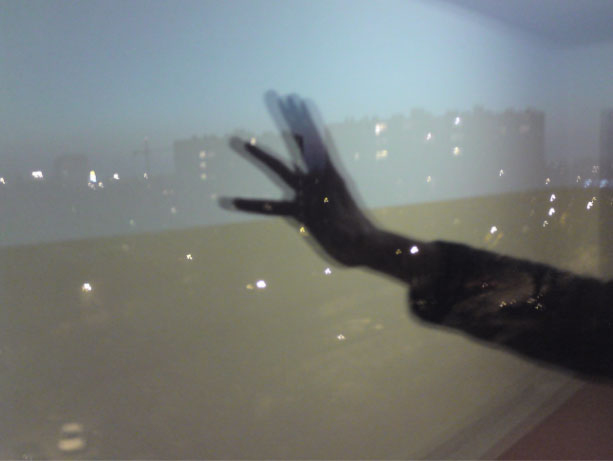
Tous ceux qui souriaient devenaient de suite de bons potes, des amis d’un soir. Bière, vin, vodka, jazz. – Te quiero mucho – tu murmurais à l’oreille de celles qui étaient attirantes et disposées. Tu fermais les yeux, mais il y manquait un truc. Tu savais bien ce qu’il y manquait.
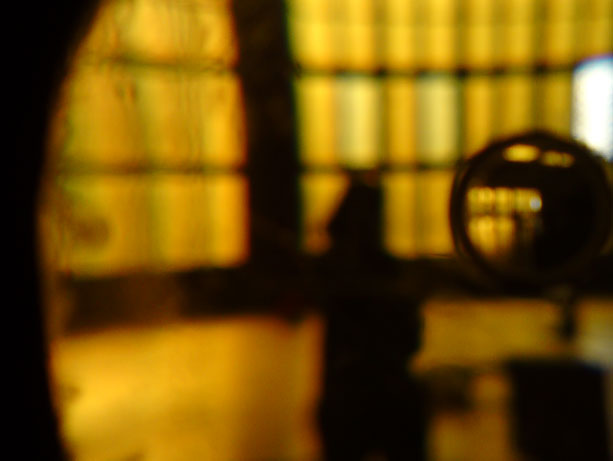
La nuit caniculaire ne connaissait pas de fin.
Tu ramassais des fraises. Tu peignais et vendais tes dessins à même le trottoir. Les soirs tu dansais avec le feu et laissais la musique te guider.
Tu donnais aux rats de la pizza froide aux pieds de Notre Dame. Tu regardais la Sagrada Familia se refléter dans un étang et quand tu y jetais un caillou, le bâtiment se mettait à onduler des hanches et à danser. Tu as planté la tente entre un lac et la plage Halikounas, tu fouillais dans le sable à la recherche de petite monnaie et quand tu avais ce qu’il te fallait, tu allais dans un bar fréquenté par des surfeurs et commandais un mojito. Tu as rencontré des gars qui sautaient en parapente d’une falaise. Toi aussi, tu sautais avec eux. Un gars, à moitié Finlandais qui construisait des maisons en paille, t’a pris en stop.
Aux puces, un homme a essayé de te vendre la figurine d’un Lassie sans oreilles, un manteau en fourrure miteuse et un kaléidoscope.
Tu as pris le kaléidoscope, mais tu l’as perdu lorsque, dans la folie, tu courais à travers cette ville portuaire arabe, où plusieurs dizaines d’années auparavant un écrivain connu s’était terré, après avoir maladroitement joué à Guillaume Tell avec sa femme. Tu voulais visiter l’endroit où il vivotait, mais tu t’es perdu en chemin. Dans des recoins sombres on te chuchotait « hachisch, hachisch », mais ce n’était pas ce que tu cherchais.
Ce n’était pas ça.
(…)
C’était il y a longtemps, et peut-être même pas vrai, à l’époque où les gens s’écrivaient des lettres avec un stylo. À l’époque où la pellicule photo ne comptait que trente-six poses, à l’époque des cassettes audio.
J’ai lu ta lettre des centaines de fois, mot par mot, phrase par phrase, jusqu’à ce que je l’aie connue par cœur. Je me disais alors : ça suffit. Ne reviens pas. Tu me manques trop, je n’en veux plus. Alors je te désirais encore plus fort. Et plus encore.
J’ai lu ta lettre des centaines de fois et je n’ai jamais réussi à y répondre.
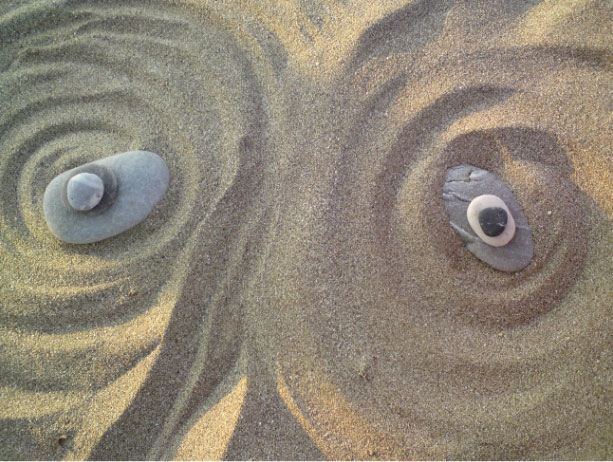
Tu es revenu quand je n’attendais plus. Ou peut-être ce n’était qu’une illusion que tu sois revenu. Ou l’illusion c’était peut-être l’idée que je n’attendais pas.
On faisait comme s’il ne s’était rien passé, comme s’il n’y avait pas eu de lettre.
On était assis sur l’herbe humide, la nuit sentait bon, sur le ciel une comète volait vers nous. Le monde devait toucher à sa fin quelques mois plus tard, et tout tendait vers ce moment. On s’en moquait. Petite Ourse, Grande Ourse, toi, moi, le garçon avec qui je sortais à l’époque, la fille que tu as emmenée et qui parlait tout le temps, et lorsqu’elle s’arrêtait un instant, elle mettait dans la bouche une mèche de ses cheveux blonds. Elle riait fort et le garçon avec qui j’étais m’a fait comprendre que son bavardage incessant le fatiguait. J’ai bu un peu trop, j’avoue, mais ce jeu m’amusait. Je faisais mine de ne pas y tenir, qu’avant c’était du passé, mais on a quand même échangé quelques regards qui en disaient long. J’observais ta gentille babilleuse qui, à chaque gorgée de vin devenait de plus en plus vermeille et de plus en plus sans-gêne. Je me suis imaginé que je lui enlevait sa robe, que je parcourais avec mes doigts le creux de son dos et que je l’embrassais sur la bouche, elle, tout intimidée et désorientée. Je l’ai fait ou pas
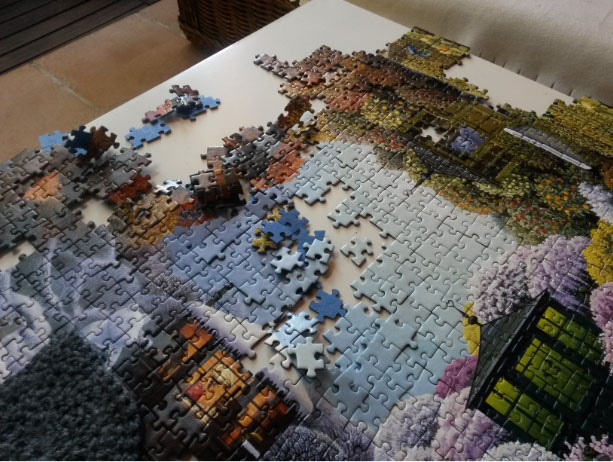
Je ne me souviens pas. Et toi ? Tu te souviens ?
C’était il y a des lustres. À l’époque où notre planète était sur le point d’être frappée par une comète. Sa queue flambait sinistrement et beaucoup prédisaient la fin. Millénaire. Nouvelle ère. Le monde s’achèvera et nous avec. On vivait comme si ça devait se produire, comme si chaque instant devait être le dernier, comme si au coin de la rue nous attendait la mort ou un nouveau début fascinant.
Mais au final la comète a tout simplement disparu derrière l’horizon, un nouveau jour s’est levé et, comme si de rien n’était, jeudi est venu.
Peu a changé depuis, et pourtant tout.
La Terre tourne toujours, mais je n’arrive pas à me souvenir, où sont passés les gamins que nous étions. (…)
Oh, que oui. Parfaitement. On était allongés dans l’herbe sur le dos et avec un bâton tendu vers le ciel, on écartait les nuages. Les chevaux buvaient de l’eau à même le ruisseau, tu avais les seins nus. J’étais alors prêt tout le temps, il me suffisait de te regarder, rien que ta présence, ton odeur, ta proximité.
Une douzaine de minutes plus tôt, on avait mangé une plante magique, une herbe-miracle, on voulait faire l’expérience de tout, plus fort et plus encore. Et même si on ne croyait pas trop à son pouvoir magique, il fallait essayer. Pour le fun, l’aventure, pour vivre quelque chose de nouveau. Et quand je pensais que les miracles ne se produiraient pas, toi, tu as plongé dans un demi-sommeil très long et moi, j’avais l’impression d’avoir avalé un papillon, d’en avoir plein le ventre. La forêt s’est transformée en jungle et d’un coup tu t’es trouvée sous un arbre enroulée d’un fil coloré. Plongé dans la terre, de mes jambes ont poussé des racines. Tu me parlais dans une langue inexistante, je ne comprenais pas. Je te regardais donner aux chevaux des morceaux de sucre. Ils se laissaient caresser, tirer la crinière. Ils étaient sauvages mais toi, tu t’en moquais. Tu en as choisi un qui brillait et tu as galopé. Je ne t’ai pas suivie. Mes bras ont poussé comme des branches, longues, vers le ciel, je touchais les nuages et les déplaçais afin qu’ils n’obscurcissent pas le soleil. Pour que ce soit toujours l’été. Et chaud. Et bien.
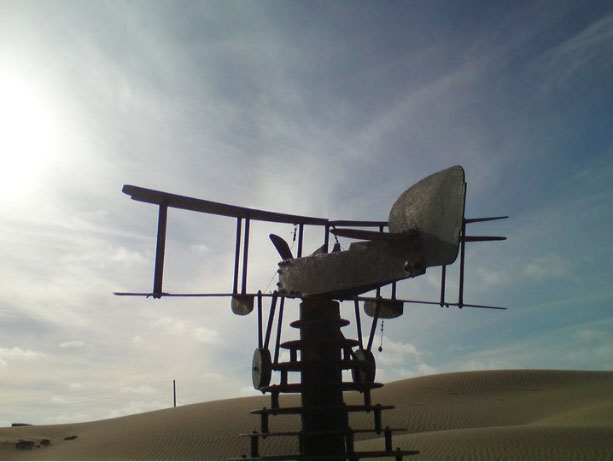
Je me disais : c’est si simple, pourquoi je n’y avais pas pensé avant, ça a du sens, il n’y a besoin de rien d’autre. Je caressais le soleil et le faisais tourner dans mes mains jusqu’à ce que je me brûle le bout des doigts, jusqu’à ce qu’il s’avère que tu es à côté de moi et me demandes, étonnée : Quels chevaux sauvages ? Je n’en sais rien.
Tu disais qu’il n’y avait pas de chevaux. En revanche tu m’as montré des spirales dessinées sur le sol avec un bâton, à peine visibles. Tu prétendais avoir trouvé une formule d’équation grâce à laquelle on peut résoudre tous les problèmes.
Plus tard je te portais dans mes bras, épuisée, à travers un pré rempli de brebis bêlantes. Nous nous sommes endormis sur une meule de foin, dans une clairière que j’ai baptisée pour toi la clairière des désillusionnistes.
On était alors dans une autre dimension, dans un autre univers, peut-être je te rêvais, je ne sais plus, je n’en suis plus sûr.
Le lendemain tandis que tu nageais dans le lac, j’ai sculpté pour toi une cuillère en bois, car de cette façon seulement, de cette unique façon, je savais te dire alors ce que nous ne devions jamais nous dire.
Parcourant le long de la colonne vertébrale, du haut de la tête, des bulbes capillaires jusqu’à la pointe des pieds. Des frissons. C’est ce que je ressens quand tu m’attrapes par derrière, quand je tends mes fesses vers toi en toute confiance et toi, tu glisses en moi et me remplis tout entière.
Ou encore : un spasme rythmique délicieux dans le bas ventre – c’est quand je suis en-dessous, mes jambes autour de tes hanches, quand tu m’écrases de tout ton poids, ta présence palpitante en moi et une chaude volupté.
Dedans, tout au fond, c’est à chaque fois que tu es sur le dos, pointu et plein et moi, je m’empale sur toi et je bouge de manière subtile et délicate et ensuite, en secouant, en resserrant alors presque toujours je jouis et j’explose la première, car le frisson me transperce d’un coup, à l’improviste.
Et parfois tu te blottis contre moi quand je suis allongée sur le côté. Tu colles ton corps à mon dos, glisses ta main dans ma fente gonflée, tu promènes ton doigt caressant la dure protubérance. Alors le plaisir est du côté intérieur des cuisses, c’est là où je le ressens le plus fort.
J’adore aussi : souffler dans le creux de ton cou et quand tu respires dans mon oreille, sucer tes doigts, mordre légèrement ta fesse tendue et quand tu m’attrapes par les cheveux, sentir l’odeur de ta peau; j’aime aussi quand tu me lèches et quand nous restons allongés juste après; tu t’assoupis et pour moi l’acte sexuel dure encore, car je m’attiédis beaucoup plus lentement.
Parfois tu demandes, comme si tu n’étais pas sûr :
- Ça a été bien pour toi ?
- Oh, que oui. Ça l’a été très.
Traduit du polonais par Dominika Wierzbowicz
